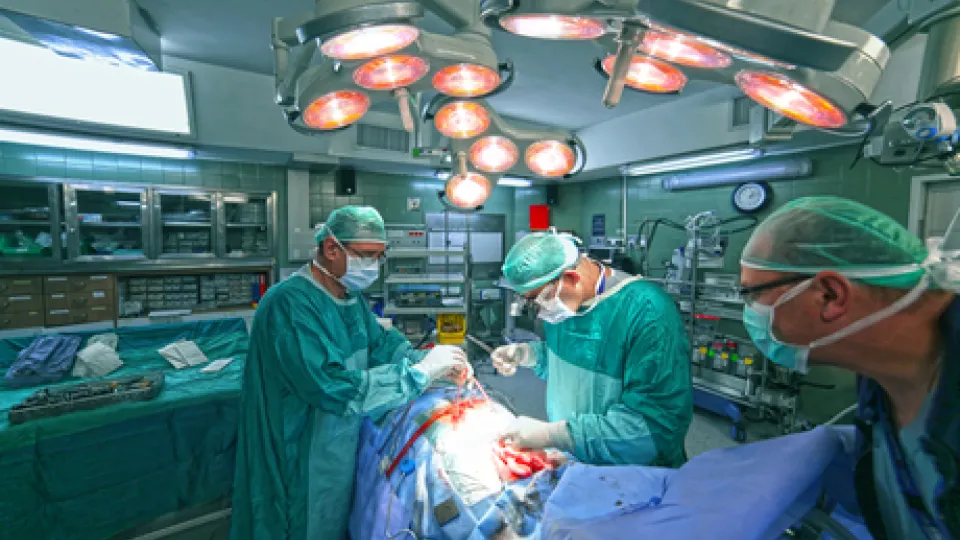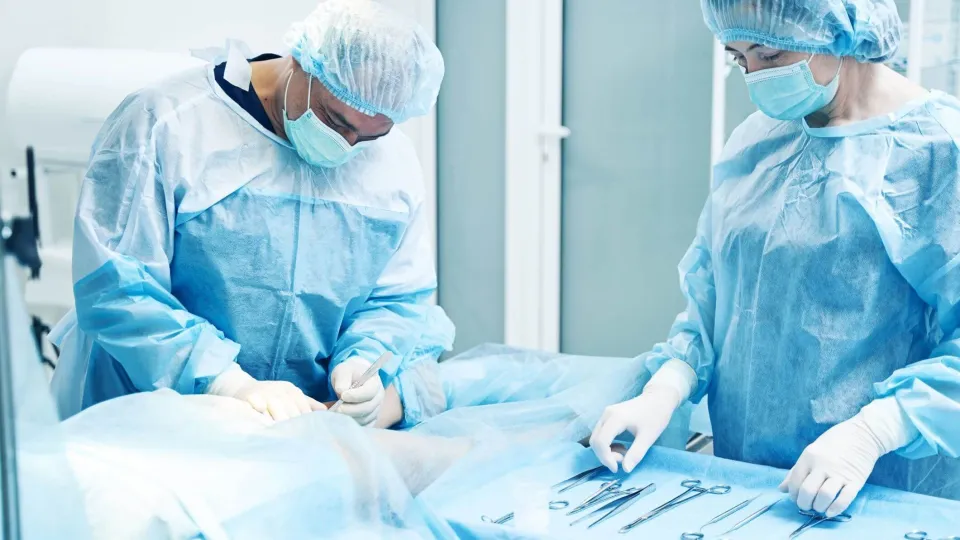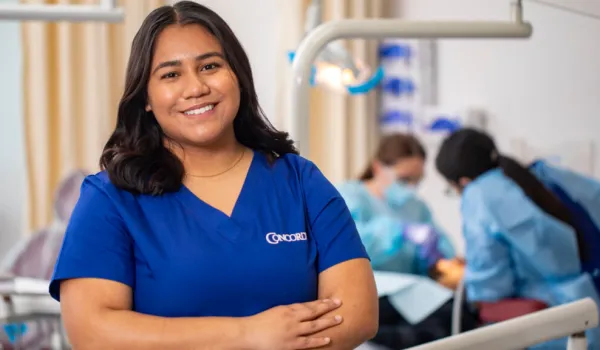
If you have ever visited an operating room, you may have noticed yourself surrounded by a team of medical professionals headed by a chief surgeon. Although surgeons receive the bulk of the attention, they cannot successfully complete operations all by themselves.
A successful surgery is the culmination of several medical professionals' efforts. These health care employees work as a team to provide as safe, efficient and comfortable a procedure as possible. Detailed below are a few of the many important roles that must be fulfilled in order to ensure a surgery's success.
The Operating Room Surgery Team
SURGEON
The surgeon is the leader of the operating room. He or she determines whether a given procedure is necessary and explains its benefits and potential risks to the patient. From there, the surgeon uses equipment already prepped by other medical staff members to complete the procedure. Most surgeons specialize in specific types of operations; common types of surgeons include neurosurgeons, vascular surgeons, maxillofacial surgeons and pediatric surgeons.
In addition to operations related to their specialties, surgeons may be called upon to work in general surgery. Regardless of the type of surgery they pursue, surgeons are always accompanied by teams of skilled professionals, ready to provide assistance wherever it is needed.
SURGICAL TECHNICIAN
Knowledgeable and passionate surgical technicians are vital to the success of all procedures. During a typical day on the job, the average surgical tech fulfills a wide array of duties. These may include sterilizing all surgical equipment, providing surgeons with necessary tools and bandaging patients after procedures are complete. Surgical technicians' efforts greatly reduce the risk of infection for both patients and other medical staff members. Additionally, surgical techs take over essential tasks that could potentially distract surgeons.
The passionate students enrolled in Concorde Career College's surgical tech programs quickly learn that their work as surgical technicians is integral to the maintenance of a safe and efficient operating room. Surgical tech is a quickly growing field; the Bureau of Labor Statistics projects a thirty percent increase in employment between 2012 and 2022.
ANESTHESIOLOGIST
The overarching goal of the anesthesiologist is to make patients comfortable so that pain does not get in the way of a successful procedure. A good anesthesiologist will also take necessary steps to ensure that the patient remains safe at all times. This requires constant monitoring of vital signs, as well as visual observation of reactions to anesthesia and various types of medication.
REGISTERED NURSES
Registered nurses play several roles in the surgery environment. Certified registered nurse anesthetists monitor patients and make anesthesia modifications as necessary. Meanwhile, circulating RNs serve as patient advocates throughout the entirety of the surgical process. In addition to tracking patient information and documenting all details of the surgery, circulating RNs must also ensure that all equipment is tested for proper functioning.
From anesthesiologists to surgical technicians, all health care workers stationed in the operating room play a vital role. If you are interested in making a real difference in the world of health care, consider pursuing a career as a surgical technician.
Equip yourself with the skills you need to promote a safe and efficient operating room. Pursue a degree in surgical tech from Concorde.
Take The Next Step Towards a Brighter Future
Interested in learning more about our Surgical Technology program?
We have a Concorde representative ready to talk about what matters most to you. Get answers about start dates, curriculum, financial aid, scholarships and more!







